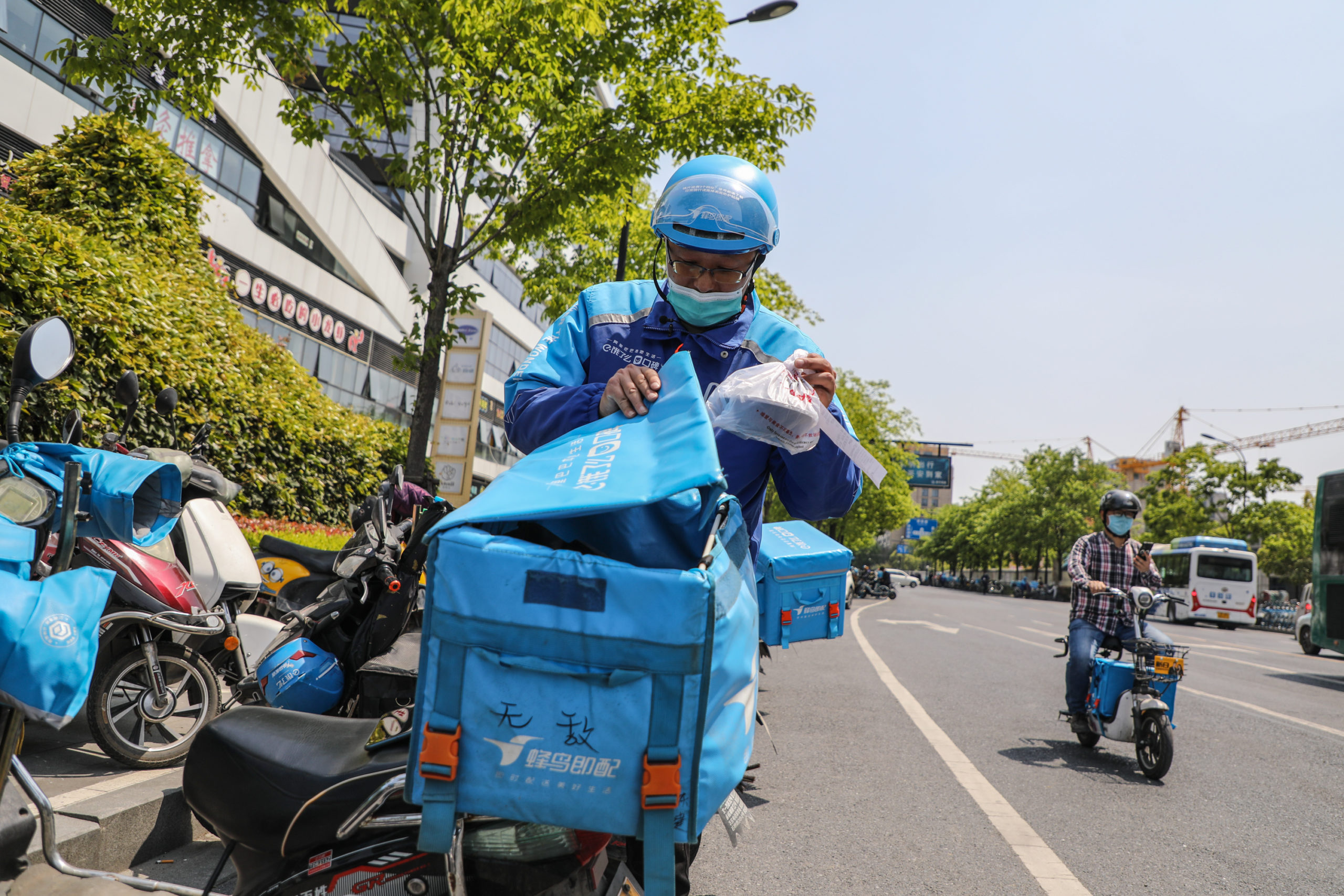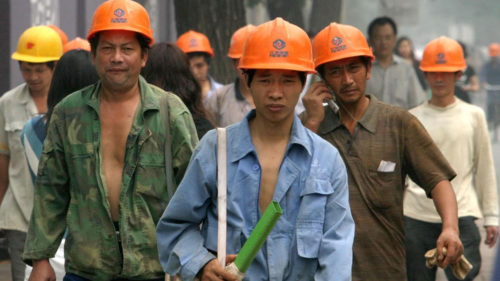Ele.me apologizes to food delivery drivers after setting impossible targets for holiday bonus pay
Couriers says Ele.me, China’s biggest food delivery app, is still treating them like dirt, almost six months after the company promised to do better.

While most businesses in China came to a temporary halt over the Lunar New Year period, food delivery companies have continued operating. And as hundreds of thousands of couriers working for Ele.me, China’s biggest takeout app, sacrificed their Spring Festival holiday to feed customers, the company’s shady labor policies have re-entered the spotlight, causing public outrage that ultimately led to a new apology.
The latest group of employees to speak out are a batch of Ele.me drivers in Beijing, who were enrolled in a special rewards program designed by Ele.me to encourage them to avoid travelling home and continue working during the seven-day holiday.
Named “Free-Run Spring Festival Supreme Drivers Series,” the competition, which kicked off on January 11 and was divided into seven weeklong performance cycles, promised Ele.me couriers that they would earn a 8,200 yuan ($1,264) holiday bonus if they completed a certain number of deliveries in each session.
Lured by the prize, many drivers in megacities, most of whom were migrant workers, gladly participated. But as the program progressed, they said that the delivery targets set by Ele.me were becoming increasingly difficult to reach — to a point where they felt were humanly impossible, according to the Beijing News (in Chinese).
On February 18, Weibo user “Delivery driver gang member union boss” (@外送江湖骑士联盟盟主), who is an Ele.me courier himself and has been documenting brutal working conditions of delivery drivers on social media, captured the drivers’ frustrations in a video (in Chinese) that has since gone viral.
The video shows a small group of Beijing-based couriers who say that they had to drop out of the incentive program on that day after learning that the sixth stage of the competition required them to make at least 380 deliveries during the period. They say that this was “unreasonably high” for the Lunar New Year holiday, when many restaurants are closed and people living in major cities have returned to their rural homes.
“There is no way I can do it. The company is taking advantage of us,” says a man dressed in a blue Ele.me uniform. “When Ele.me announced the program, I had a feeling that it was bamboozling couriers into getting involved. But who would listen to me? If these folks walked away from it, there were plenty of people willing to take up the challenge,” says another driver.
Not every driver has given up, though. But for those who decided to pull through, brutal workloads are testing their physical limitations.
“I started working around 5 a.m. and didn’t clock out until 1 a.m the next day. I made 82 deliveries,” one driver told the Beijing News. “There are about 20 people on my team and only a few of us managed to win the final prize,” he said, adding that most drivers he knew quit after hitting six of seven goals, taking a 4,600 yuan ($710) reward.
Founded in 2008, Ele.me is one of the two largest players in the on-demand food delivery market in China (the other one is Tencent-backed Meituan-Dianping). After being acquired by Alibaba for $9.5 billion in 2018, Ele.me continued to operate independently while controlling some 3 million drivers in over 2,000 cities.
While its relentless pursuit of productivity has long been a flashpoint for staff working at Ele.me, the plight of its couriers was not in the spotlight — at least until last September, after a damning exposé published by a Chinese news magazine. The report found that by using a flawed algorithm to keep track of its driver’s performance and penalize delayed delivery, Ele.me had created a dehumanizing working environment, where couriers were encouraged to ride recklessly and break traffic rules.
In response to an onslaught of criticism ignited by the investigation, Ele.me said that it would do better to protect its drivers while asking customers to be more patient with their orders. “Every hardworking individual deserves to be respected,” it wrote in a statement.
Back then, the vaguely-worded statement was deemed “insincere” by its couriers and customers alike. And now, the company issued another substance-lacking statement regarding the bonus controversy, in which it apologized for overestimating the number of orders in some regions during the holiday and promised to “develop additional events” to make it up for some couriers.
Judging from reactions on Weibo, it seems like virtually no one was convinced that Ele.me was seriously considering improving the working conditions for its drivers. “I bet the additional event is just another incentive program that it uses to exploit workers,” a Weibo user wrote (in Chinese). Many said they already deleted the app in solidarity with the couriers. “Disgusting! You blood-sucking demons won’t get a penny from me,” another Weibo user commented.






